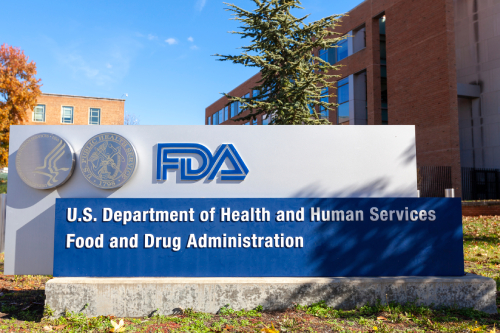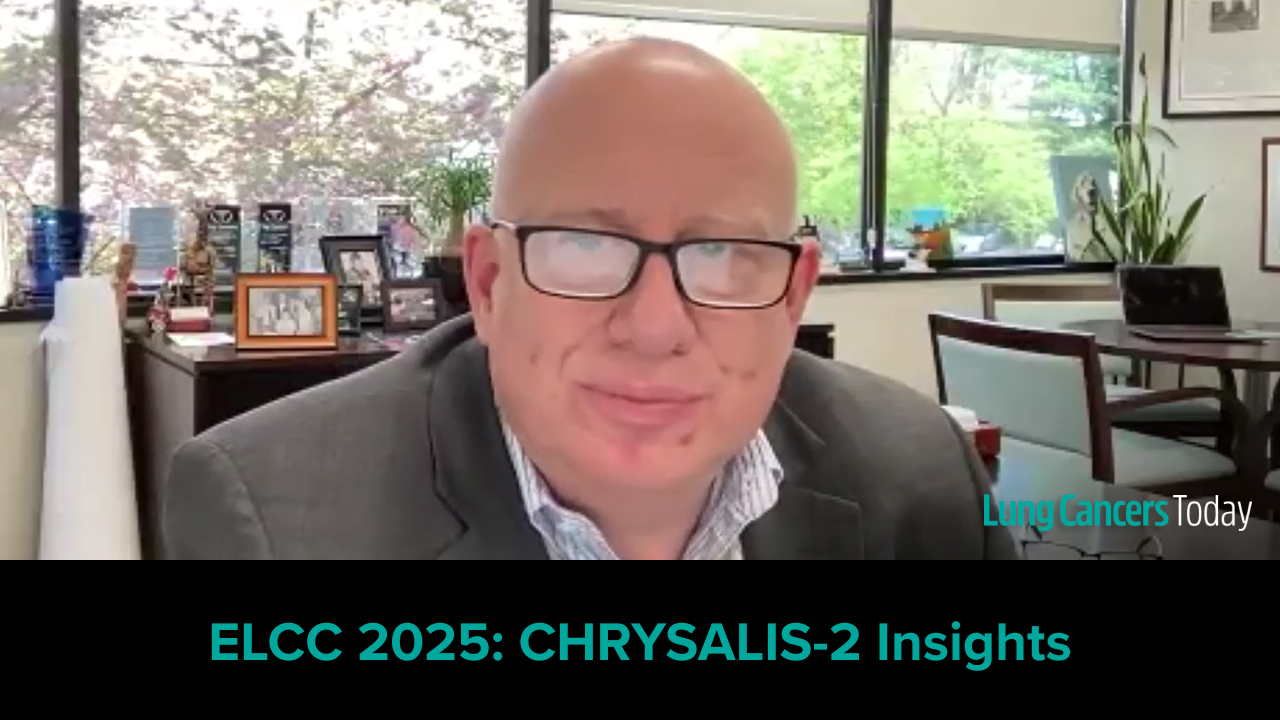Dr. Camidge Discusses Launch of Phase 2 Trial Evaluating RAF/MEK Inhibitor in NSCLC
By Kaitlyn D’Onofrio - Last Updated: September 21, 2023Verastem Oncology recently announced the initiation of the second phase 2 registration-directed clinical trial from its RAMP (Raf And Mek Program). The study, RAMP 202, will evaluate VS-6766 (RAF/MEK inhibitor), alone and in combination with its FAK inhibitor (defactinib), for patients with KRAS-G12V mutant non-small cell lung cancer (NSCLC). The news follows a separate announcement in December detailing the launch of a phase 2 trial evaluating VS-6766 alone and in combination with defactinib in patients with recurrent low-grade serous ovarian cancer. Ross Camidge, MD, PhD, Director of Thoracic Oncology at the University of Colorado School of Medicineand Universityof Colorado Cancer Center, and Andrew Koustenis, Global Program Leader, Verastem Oncology, talked about the launch of the trial in an interview with DocWire News.
Dr. Camidge: Hi, I’m Ross Camidge. I’m the Director of the Thoracic Oncology Program at the University of Colorado, and I’m going to talk to you a little bit about a clinical study involving a combination of two drugs made by Verastem. One is called VS-6766. This is a combination RAF/MEK inhibitor, and it’s being used together with defactinib, which is a FAK inhibitor. And we’re going to focus on its use in KRAS-mutant non-small cell lung cancer with a particular focus on KRAS G12V.
I run one of the better known lung cancer programs in the country and perhaps in the world. We put about 40% of our patients on clinical trials because we like to think that we’re pretty good at spotting the winners, and it’s a way of getting our patients access to drugs long before they’re licensed.
I worked with Verastem before on their FAK inhibitor, and I had seen some of their presentations, I think, from AACR early in 2020. And sometimes you wait to be asked, but sometimes you say, “Okay, well I know this company and this data looks really interesting.” And so I actually reached out to them. A lot of their data was in ovarian cancer, but I was sufficiently excited about the data, their particular activity in something called KRAS G12V, which is about a quarter of the KRAS mutations in lung cancer, made me say, “Okay, well, I want to grab this for our lung cancer patients.” And so I actually reached out to them and they said, “The timing was perfect. Let’s talk about lung cancer.”
DocWire News: In your experience are patients with NSCLC interested in participating in clinical trials?
Dr. Camidge: I think nationally lung cancer patients have been relatively poorly accrued to clinical trials. The national average is about 2 to 3% of lung cancer patients go on clinical trials. As I mentioned, in our program, it’s about 40% and that’s not because we’re in the business of throwing clinical trials at people, but nobody wants to rest on their laurels and say, “Okay, we’ve solved lung cancer.” We’re always looking for the next best treatment, and so we use clinical trials as a means of getting access to tomorrow’s treatments today.
With that in mind, it becomes a very easy conversation to have with patients say, “Look, here are the standards of care. Here are options in clinical trials, or you’ve already been through the standards of care. This is what I can give you in a clinical trial.” And I think we’ve been very successful at getting people into clinical trials because the trials have been successful for the patients.
DocWire News: What are the most common questions your colleagues ask you about this study?
Dr. Camidge: I think when anyone is considering a study for their patients, where they’re going to send their patients in to be seen for consideration of a study, they want to know how often does the patient have to be seen? Is it very burdensome on them? Particularly in the time of COVID-19, that becomes an even greater issue. They want to know about the potential side effects. There are some side effects associated with this drug combination, rash, nausea, all of which have to be proactively managed.
And then of course the big elephant in the room is, is it going to work? And that’s obviously an evolving database, because if you knew that answer, you wouldn’t have to do the trial. But you can say, “This is what we know so far. The people who responded have had G12V, that looks pretty promising. They’re not putting all their eggs in that one basket. They are exploring other KRAS mutations too.” But those are the key things. How often will the patient have to come? What price are they going to have to pay in terms of side effects? And is it going to work?
DocWire News: How do you think this study may change the treatment of NSCLC?
Dr. Camidge: I think in the last year and a bit, we have started to recognize that some aspects of KRAS mutations, which is the single most common type of mutation you get in NSCLC, are actionable. It was the elephant in the room in the sense that it was common and nobody knew what to do with it other than just give it chemotherapy and radiotherapy and immunotherapy. But I think we saw that one particular mutation, something called KRAS G12C, which is about 45, 46% of cases of KRAS mutation in lung cancer, had responses to KRAS G12C inhibitors.
Now they don’t work in everybody. So presumably there’s some heterogeneity there that we don’t fully understand, or some people have responses and they don’t last very long. So there’s some kind of feedback or client resistance going on. But G12V is the second most common type of KRAS mutation in lung cancer, and so looking for a drug to test that same kind of approach, “Can you target KRAS mutations in lung cancer?” was very attractive. So I think that’s what we hope that this will be the next drug for the next kind of KRAS mutation.
DocWire News: How is this trial unique from other trials or treatments on the market?
Dr. Camidge: The trial is designed specifically with a focus on G12V. It doesn’t put all of its eggs in that one basket. It will look at some other KRAS mutations too, but it’s really the only one going after that specific mutation so far. It’s really going after it with two separate approaches. One drug that hits two points in the signaling pathway, a second drug called defactinib, which is supposed to work on one of the feedback mechanisms that might arise. So it’s really unique in the sense that it’s trying to define the actionability of the second most common KRAS mutation in lung cancer. And so that’s very exciting. I guess it will either be a success or not, but it has a real potential to expand the list of things that we can actually act on.
Andrew: Hello, my name’s Andrew Koustenis. I’m the Global Program Leader for VS-6766 at Verastem Oncology. We are very excited at Verastem to be following the signal that was seen in the FRAME study by initiating this phase 2 trial, a registration-directed trial, in KRAS-mutated NSCLC, a trial that we’re now calling the RAMP 202 trial, RAMP standing for RAF And MEK Program—because, as has been mentioned, this trial will be evaluating an agent that is offering vertical pharmacologic blockade by blocking both RAF and MEK.
We have just recently initiated this trial in the United States and will be soon initiating it in Europe as well and look forward to the results, as hopefully they will be changing outcomes for a group of patients that does have a unmet medical need, again, focusing on the G12V variant in KRAS-mutated NSCLC. Thank you.







 © 2025 Mashup Media, LLC, a Formedics Property. All Rights Reserved.
© 2025 Mashup Media, LLC, a Formedics Property. All Rights Reserved.